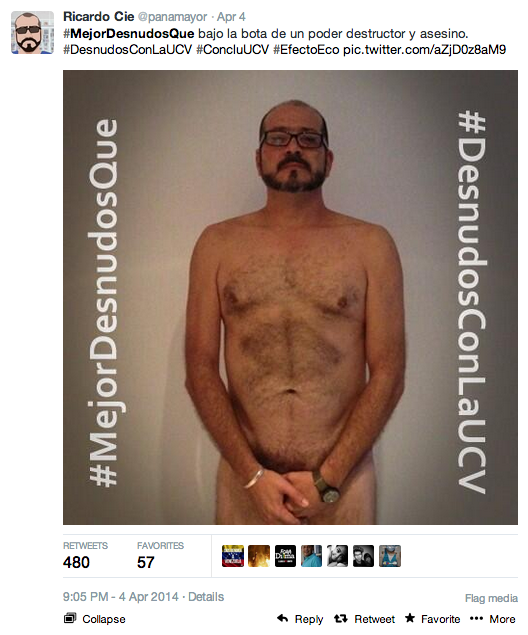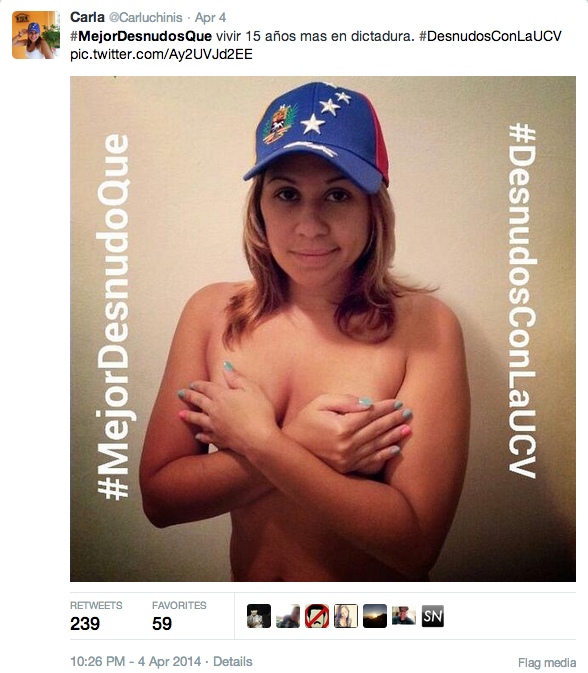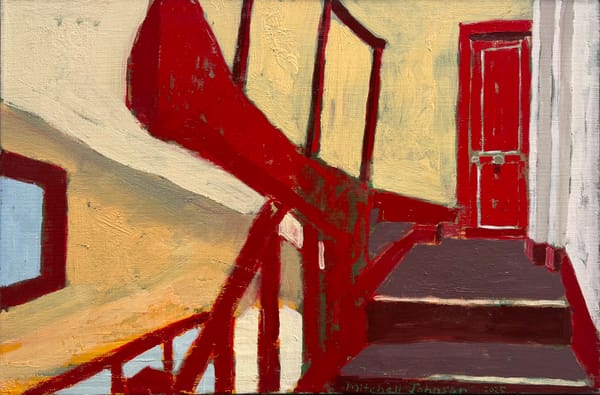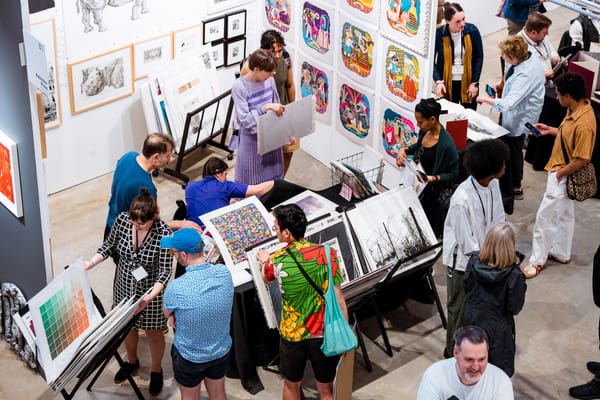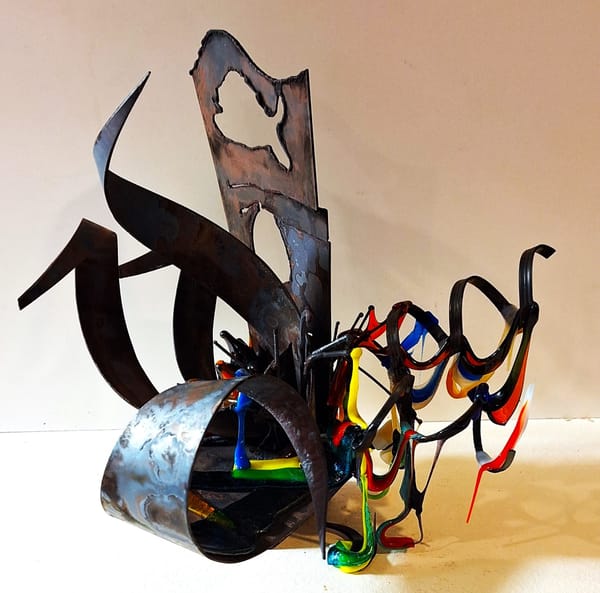Venezuelans Protest Tyranny With Performance Art and Nude Selfies
A young man stands on a sidewalk in Caracas, Venezuela holding a sign that reads, "De niño eran mis héroes. Ahora me reprimen." (“As a child they were my heroes, now they repress me”). Surrounding him, young men and women dressed in combat fatigues hold toy guns, their faces painted bright green. Th
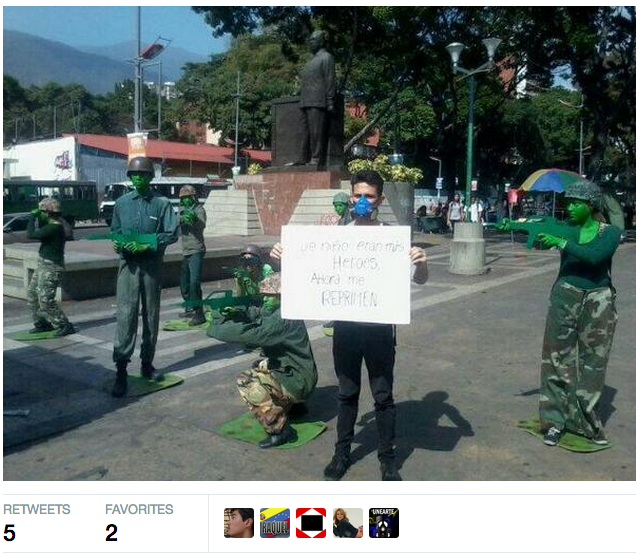
A young man stands on a sidewalk in Caracas, Venezuela holding a sign that reads, “De niño eran mis héroes. Ahora me reprimen.” (“As a child they were my heroes, now they repress me”). Surrounding him, young men and women dressed in combat fatigues hold toy guns, their faces painted bright green. They’re dissenting against the Venezuelan government security forces’ bloody crackdowns on protesters. Since February, the attacks have killed 39 people and injured more than 600.
The performance protest was staged by Resistencia Une Arte, a group of students from the country’s National Experimental Art University — ironically founded by Hugo Chavez. A recent tweet from their Twitter account calls art their weapon. In recent weeks, they’ve appeared throughout the capital — in subways, public squares, and public malls — encouraging Venezuelans to take a stand against the country’s endless food shortages, rising crime, and poverty.
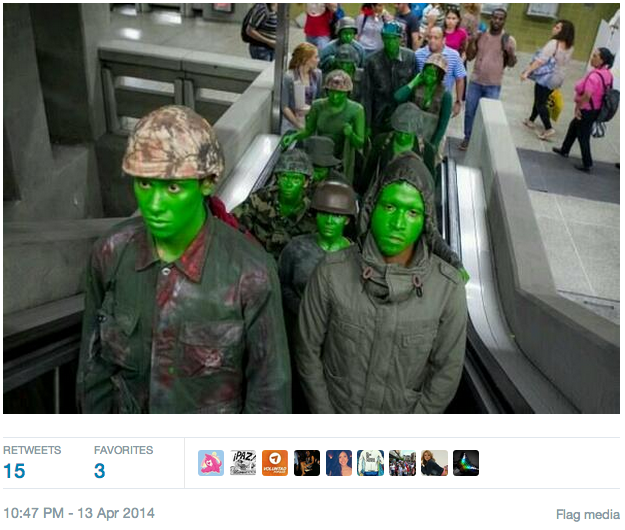
Similar movements, together known as the Protesta Creativa (Creative Protest), have gathered momentum throughout Venezuela in the past two months. Artists have taken to the streets armed with brushes and paint buckets, braving risk and insult to cover walls and buildings with anti-government slogans and pleas for change. One mural in the northern city of Maracaibo reads, “La Violencia es el recurso del incompetente.” (“Violence is the resort of the incompetent”).
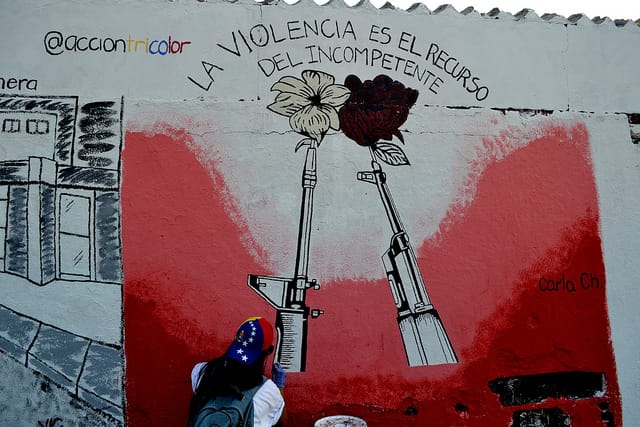
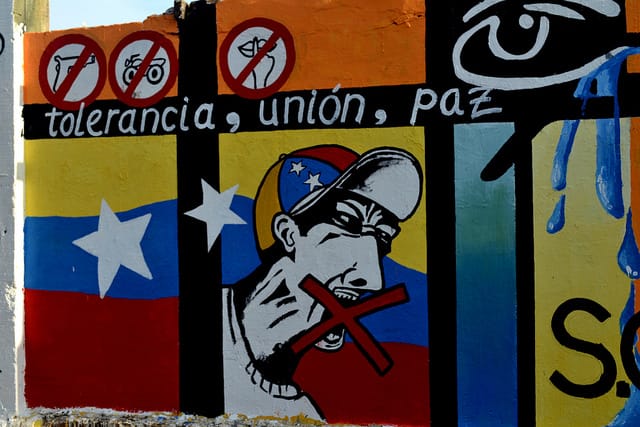
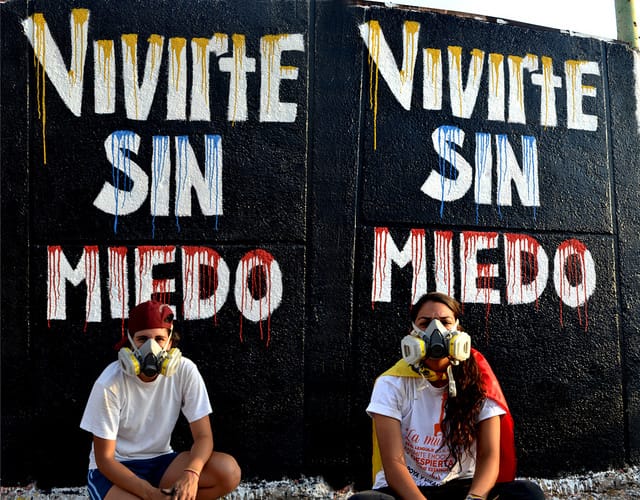
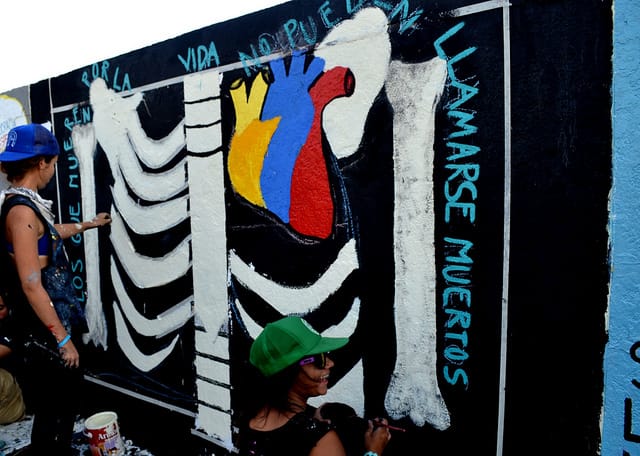
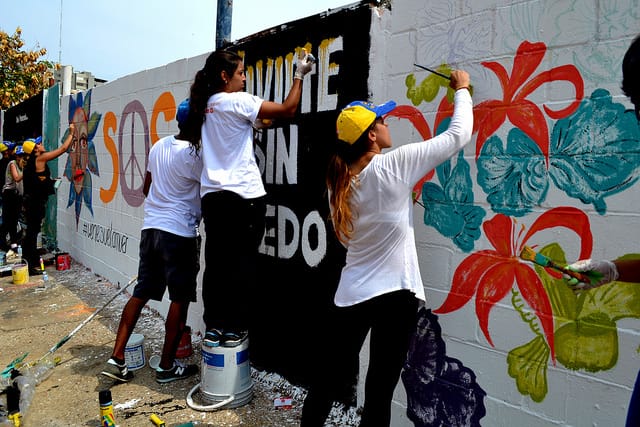
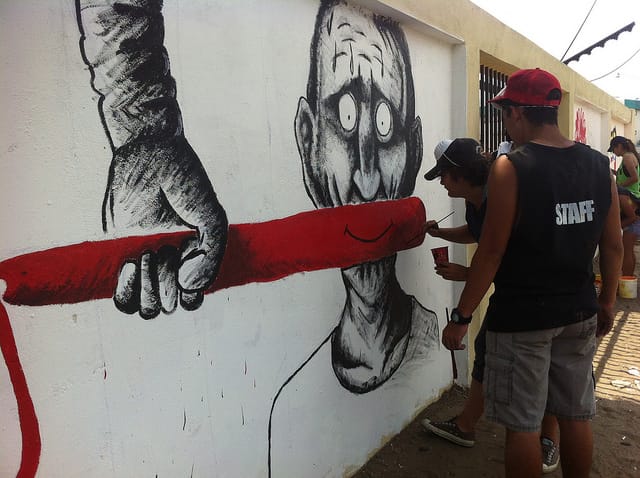
Visual social media protests have also emerged. After police publicly stripped a student activist at the Central University of Venezuela in Caracas, the publicist Ricardo Cie launched a nude selfie campaign on Twitter condemning the violence. Participants — including faculty and alumni of the university — bared all to express their solidarity with the victim, posting the resulting images with the hashtag #mejordesnudosque (#betternakedthan). The campaign comes just weeks after the government blocked a good chunk of the Internet, including Twitter.
These artistic and social media demonstrations offer a revealing look into a country that remains mysterious to many, and they have undoubtedly impacted its collective consciousness. But it is yet to be seen whether they will soften the heart of a government that doesn’t hesitate to use violence. Unfortunately, considering the country’s recent track record, it seems unlikely.
